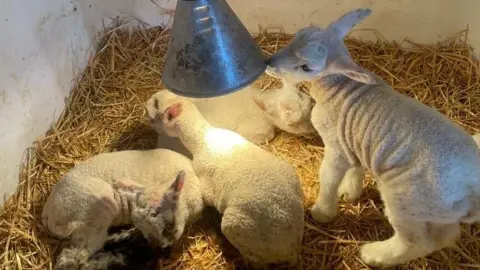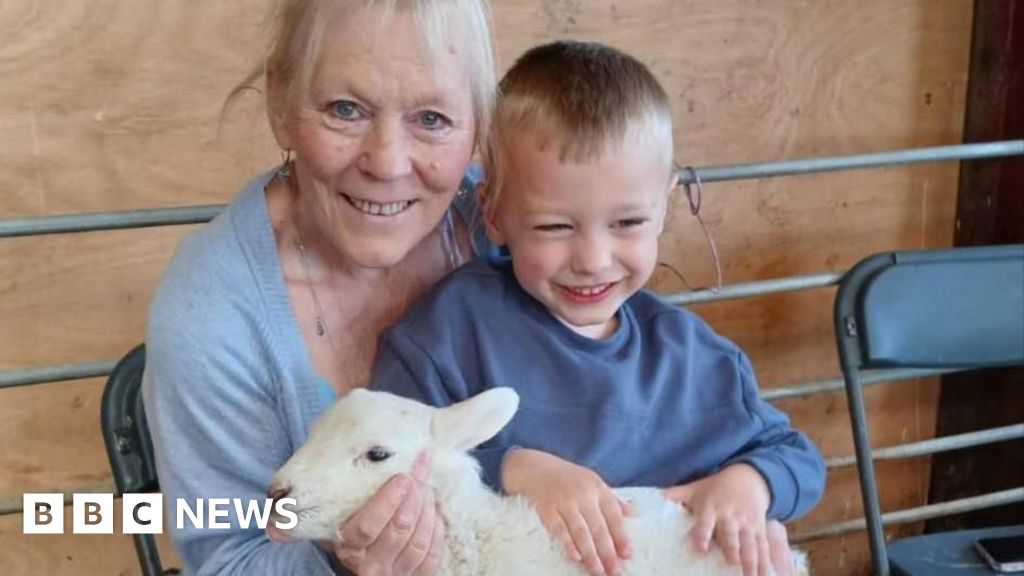 Family photo
Family photoThe number of people who had contracted a parasitic infection after attending calf and lamb feeding sessions at a farm in south Wales has risen to 81.
Seven new cases of cryptosporidium have been confirmed since last week, all linked to visits to Cowbridge Farm Shop at Marlborough Grange Farm in Cowbridge, Vale of Glamorgan, during March and April.
Public Health Wales (PHW) said the infection has led to 16 people requiring hospital care for at least one night, including a four-year-old boy.
The farm shop, which the BBC has approached for comment, has voluntarily suspended its feeding and petting sessions on 29 April and is cooperating fully with the ongoing investigation, PHW said.
Officials from Public Health Wales and other agencies met on Wednesday for the fourth time since the outbreak began to co-ordinate the response.
They urged the public to take hygiene precautions when visiting farms.
PHW’s Beverley Griggs, consultant in health protection at Public Health Wales, said: “We are continuing to work with our partners to investigate this outbreak and to reduce the risk of further transmission”.
“Cryptosporidium infection often clears up without treatment, but it can be more serious for vulnerable people.
“We advise anyone who visited the farm and is experiencing symptoms such as diarrhoea, stomach pain or nausea to contact their GP or call NHS 111 Wales.”
Cryptosporidium is commonly associated with contact with farm animals, and can spread easily from person to person and poses increased risk to young children and those with weakened immune systems.
Symptoms typically appear two to 10 days after exposure and can last up to two weeks.
PHW warned infection can still spread after symptoms subside and has urged those affected not to go swimming for two weeks.

Visitors to petting farms are being reminded to avoid close contact with animals, supervise children closely, and wash hands thoroughly with soap and warm water after touching animals or walking around a farm.
Alcohol hand gels do not provide sufficient protection.
Pregnant women are also being advised to steer clear of new born lambs during lambing season due to a higher risk of infection.
What is cryptosporidium?
- Cryptosporidium is a microscopic parasite that can cause an unpleasant and sometimes dangerous illness called cryptosporidiosis.
- It lives in the intestines of infected humans and animals and is passed out in their poo.
- It can then spread to water sources like lakes, rivers, and swimming pools, as well as food like raw milk.
- The illness can affect anyone but is most common in children aged one to five.
- Symptoms, which can last for around two weeks, include severe watery diarrhoea, vomiting, stomach cramps, nausea, fever, and loss of appetite.
- There is no specific treatment but most people feel better within a month.
Source: UK Health Security Agency

